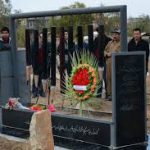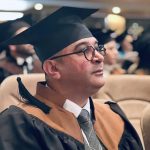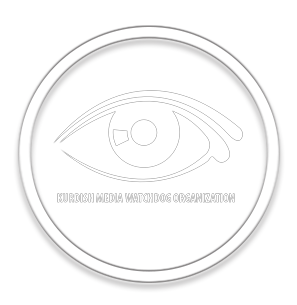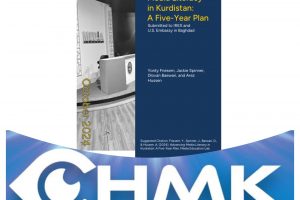
By Honar Hama Rasheed
From Niqash

In Iraqi Kurdistan, journalists who criticize the local authorities may be in danger. Over the past years, several have been murdered. Until now, no progress has been made on their cases.
This coming Saturday marks the anniversary of the founding of the first newspaper in Kurdish. The first edition of the newspaper, named Kurdistan, came out on April 22, 1898 in Cairo, Egypt. And in the semi-autonomous northern region of Iraqi Kurdistan – the place that comes about as close as it gets to a Kurdish homeland – journalists have cause to celebrate the 119th birthday of the Kurdish-language press.
However some Iraqi Kurdish journalists have suggested there may be a better way to celebrate than to throw a party. They would prefer
The last such case involved Wedat Hussein Ali, 28, a reporter for the RojNews News Agency who also had ties to the somewhat controversial Kurdish Worker’s Party, or PKK. His body was found on the road near the city of Dohuk in August 2016 and even though months have passed, his brother Tariq confirmed to NIQASH that no progress appears to have been made on the case.
We don’t care what the public or anyone else says. We did our job and gossip is of no concern. The killer was arrested and prosecuted.
“An independent party needs to investigate because his relatives are accusing security forces in Dohuk of the crime,” says Dlovan Barwari, the head of the legal team looking into the case. “But in fact, the security forces are the ones who are supposed to be investigating the case.”
“It isn’t just important to find out who killed Wedat,” Barwari continues. “It’s also important to find out more about who is murdering journalists and why.”
Hussein Ali’s case is not the only one. There are plenty of other cases and some of the best known include those of Soran Mama Hama in Kirkuk, Sardasht Othman in Erbil and Kawa Ahmed Germyani in Kalar, south of Sulaymaniyah. All of the journalists were known for their heavy criticism of the regional government.
Most recently there have also been several cases of journalists being kidnapped or beaten in Iraqi Kurdistan.
The US-based Committee to Protect Journalists, or CPJ, follows up on the various cases in Iraqi Kurdistan and Sherif Mansour, the CPJ’s coordinator for North Africa and the Middle East, agreed there had not been enough progress made.
Where progress has been made, it appears dubious to anyone who knows the details of the case, says Rahman Gharib, from the Kurdish media rights watchdog, Metro Centre. “Where the courts have made decisions, they are not trustworthy ones,” Gharib told NIQASH. “It is true that the cases for Kawa Germyani and Sardasht Othman have been closed. But we believe that the men who confessed to the killings were forced to do so.”
“The legal cases were not convincing,” argues Germyani’s brother, Karwan Ahmad. “We are not convinced and nor are the general public.”
One of the lawyers on the case, Kawa Latif, told NIQASH that the killer changed his story many times, before the judge.
“The party tasked with investigating the case, and the court, did not do their job properly because they are under the control of the government and political parties,” Latif explains. “They can’t make decisions independently and even if they do find the killers, they never find the people who sent the killers. So they just tend to close the case.”
Even Mansour of the CPJ is hesitant. “We believe the cases were distorted and that the real killers are at large,” Mansour says. “We have discussed this many times with the region’s authorities but they have yet to give us a convincing response.”
Even though senior officials from the local prosecutor’s office have also expressed concern about the outcome of the various cases involving murdered journalists, the Kurdish Higher Judicial Council denies any wrong doing.
The Council was very careful in each of the cases involved, said a spokesman, Omid Mohsen. “The court took into account the results of the investigations by the security forces and once all evidence had been reviewed a decision was made,” Mohsen said. He felt that if anyone was to blame, it was the local security forces.
Ali Mohammed, who held the post of director of the local intelligence services and security – known as the Asayesh – at the time that Germyani was assassinated and who was involved in the investigation, told NIQASH that he and his staff did everything they should.
“We arrested the killer and brought him to justice,” Mohammed argues. “We don’t care what the public or anyone else says. We did our job and gossip is of no concern to us. The killer of Kawa Germyani was arrested and prosecuted,” Mohammed insisted.











